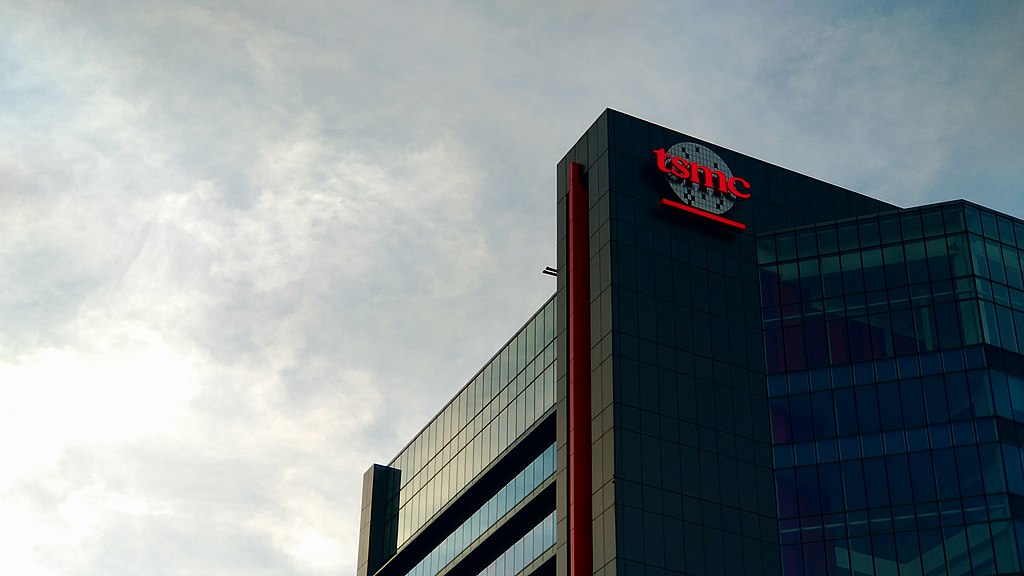Taiwanese semiconductor manufacturer TSMC has apparently encountered a stumbling block in the Arizona facility's 3nm development, potentially delaying completion until 2027.
TSMC Sees Delay in 3nm Fab in Arizona
The move of cutting-edge facilities to the United States has not gone well for TSMC, as the company has encountered difficulties ranging from social concerns among the workers to a lack of collaboration from governments.
However, the difficulties have escalated to the point that it is now being stated that the Arizona plant, notably the Fab 21, would face yet another delay in the form of using methods, and TSMC is unsure about the future.
In a conference call with analysts, TSMC Chairman Mark Liu reported the status of Fab 21 phase 2 development, noting that the facility's development is dependent on the US Government's level of cooperation in the form of subsidies and the provision of essential resources. Here's what the chairman said:
“Yes. The second fab shale is under construction. But what technology in that shell is still in under discussion. I think that also has to do with how much incentives that fab, the U. S. Government can provide. And yes, there will be a gap. At least, current planning is '27 or '28, that will be time frame.
To be honest, most of the fab in overseas, what actually be loaded, what technology is being set up, really, it's a decision of customers' demand in that area at that timing. So, nothing is definitive, but we are trying to optimize value for the overseas fab for TSMC.”
Adjusting Strategies for 3nm Manufacturing and Regional Demands
So, according to the aforementioned statement, TSMC hopes to begin 3nm manufacturing at the fab in 2027 or 2028, a more than a year delay. It is crucial to note that the Arizona plant has already been subject to several delays, with mass production being postponed to 2025 due to a shortage of a "skilled workforce."
By the new timescale set by TSMC, it is clear that companies like Apple, who formerly relied on the Taiwanese behemoth for their goods, would have to react appropriately, sourcing cutting-edge techniques straight from the United States, as per WCCFTech.
Another intriguing comment by Mark Liu is the "optimization" of facilities, which implies creating them in a way that meets regional needs. However, if commercial production of the firm's 3nm process begins by 2027, it is unclear if the node will be important at that time, but TSMC may have figured this out, and because the US plant is such a huge deal for tech businesses in general, it will not be left behind.
Photo: Briáxis F. Mendes (孟必思), CC BY-SA 4.0, via Wikimedia Commons



 Federal Judge Blocks Virginia Social Media Age Verification Law Over First Amendment Concerns
Federal Judge Blocks Virginia Social Media Age Verification Law Over First Amendment Concerns  Coupang Reports Q4 Loss After Data Breach, Revenue Misses Estimates
Coupang Reports Q4 Loss After Data Breach, Revenue Misses Estimates  Meta Encryption Plan Sparks Child Safety Concerns Amid New Mexico Lawsuit
Meta Encryption Plan Sparks Child Safety Concerns Amid New Mexico Lawsuit  Nintendo Share Sale: MUFG and Bank of Kyoto to Sell Stakes in Strategic Unwinding
Nintendo Share Sale: MUFG and Bank of Kyoto to Sell Stakes in Strategic Unwinding  Microsoft Gaming Leadership Overhaul: Phil Spencer Retires, Asha Sharma Named New Xbox CEO
Microsoft Gaming Leadership Overhaul: Phil Spencer Retires, Asha Sharma Named New Xbox CEO  Samsung and SK Hynix Shares Hit Record Highs as Nvidia Earnings Boost AI Chip Demand
Samsung and SK Hynix Shares Hit Record Highs as Nvidia Earnings Boost AI Chip Demand  Anthropic Resists Pentagon Pressure Over Military AI Restrictions
Anthropic Resists Pentagon Pressure Over Military AI Restrictions  Hyundai Motor Group to Invest $6.26 Billion in AI Data Center, Robotics and Renewable Energy Projects in South Korea
Hyundai Motor Group to Invest $6.26 Billion in AI Data Center, Robotics and Renewable Energy Projects in South Korea  Nvidia Earnings Beat Expectations as AI Demand Surges, Stock Rises on Strong Revenue Outlook
Nvidia Earnings Beat Expectations as AI Demand Surges, Stock Rises on Strong Revenue Outlook  Samsung Stock Hits Record High on Nvidia HBM4 Supply Deal, Boosting AI Chip Rally
Samsung Stock Hits Record High on Nvidia HBM4 Supply Deal, Boosting AI Chip Rally  xAI’s Grok Secures Pentagon Deal for Classified Military AI Systems Amid Anthropic Dispute
xAI’s Grok Secures Pentagon Deal for Classified Military AI Systems Amid Anthropic Dispute  OpenAI Faces Scrutiny After Banning ChatGPT Account of Tumbler Ridge Shooting Suspect
OpenAI Faces Scrutiny After Banning ChatGPT Account of Tumbler Ridge Shooting Suspect  Apple to Begin Mac Mini Production in Texas Amid $600 Billion U.S. Investment Plan
Apple to Begin Mac Mini Production in Texas Amid $600 Billion U.S. Investment Plan  Amazon’s $50B OpenAI Investment Tied to AGI Milestone and IPO Plans
Amazon’s $50B OpenAI Investment Tied to AGI Milestone and IPO Plans  Nvidia Earnings Preview: AI Chip Demand, Data Center Growth and Blackwell Shipments in Focus
Nvidia Earnings Preview: AI Chip Demand, Data Center Growth and Blackwell Shipments in Focus 































